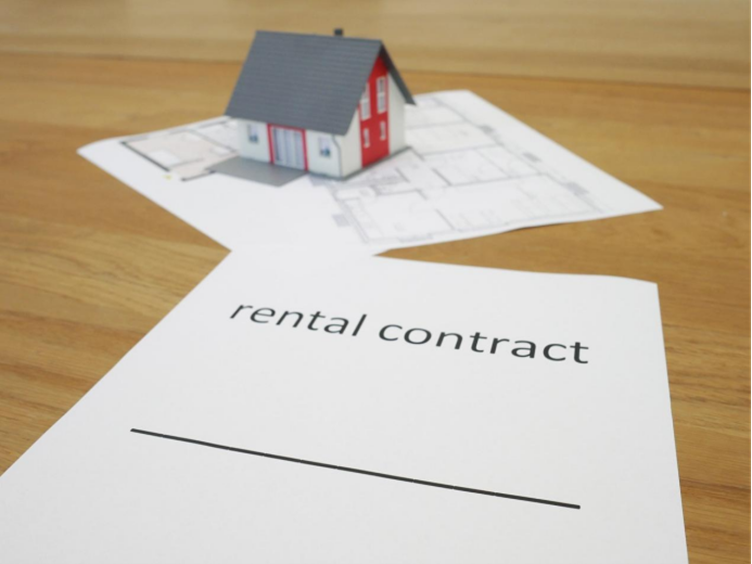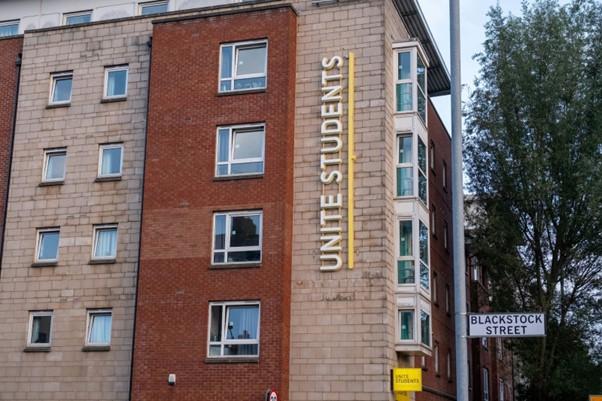
Rent in the UK | Best Guide to Finding Your New Home

For international students coming to the UK, there are generally three main types of accommodation to consider:
- Home stay
- Student halls of residence provided by the university
- Off-Campus private student accommodation
Usually your university will help you arrange accommodation—often in the form of on-campus dormitories or homestays. While these options can be slightly more expensive, they’re far more convenient and take a lot of the stress out of settling in.
Renting accommodation off-campus can require a bit more effort, especially for students who are unfamiliar with the rental rules and precautions in the UK.
But private student accommodation provides more privacy and room types, which cater to most students’ needs. The cost of rent may differ from cities, e.g. student accommodation at Nottingham may cost £155/week, London £223/week, while the risks and considerations are the same. This article will explain details about renting accommodation. Students are recommended to do a comprehensive information search and preparation before renting accommodation.
Risks of Renting a Home
1.Subletting
Subletting is a rental arrangement where a person rents a multi-bedroom house, then rents out each room individually, often through online listings. While this can be a more affordable way to secure accommodation, it’s not without its risks. For example, you may run into issues like not getting your deposit back when moving out, or being at risk of eviction if the sub-landlord’s contract comes to an end. While the cheaper rent might seem appealing, it’s important to carefully consider these potential drawbacks before choosing this option.
2. Problematic landlords or agents
Even if you secure a direct rental through a landlord or agent, you might still face a few challenges. The issues are often similar to those found with subletting, such as deposit disputes or unexpected eviction risks. However, one advantage of going through a landlord or agent directly is that you have more legal protection compared to less formal rental arrangements.
3. Difficult housemates
Everyone's living habits are very different, and it may be very difficult to adjust to. There may be a lot of situations involving cost-sharing where conflicts arise. This could happen where most students gather and book shared flats, like student accommodation Leeds, student accommodation Glasgow, and in many other cities in the UK.
The Process of Renting in the UK

In general, the rental process includes the following steps
Step 1: View the property. It is highly recommended that you visit the property in person.
Step 2: If you are looking for a property from an agent, they will usually ask you to pay a Holding Fee in advance. This is the amount of money you will be charged to take the property off the market first after you have decided to rent it, so that no one else can rent it. The statute states that the amount of the deposit cannot exceed one week's rent.
Step 3: Prepare the contract. A formal agent or landlord will clearly indicate what you need to pay on the contract and what each item is: rent, tenancy deposit, holding deposit, contract change fee, early termination fee, bills (water, electricity, TV Licence, Council Tax), compensation for losses caused by tenants.
Step 4: Sign the contract. Remember that the contract will take effect after you pay the fee. So before signing the contract, please read the contract carefully.
Step 5: Get the key and you can move into your new home!
Notes on Renting an Apartment

1. Rental contract
All aspects of renting should be covered in your rental contract, and the main clauses that you must pay attention to are:
a. How long the rental contract is for, how long you can move out, and how long you have to give notice in advance to move out.
b. What kind of repairs the tenant has to do by himself and what kind of repairs the landlord will take care of.
c. Where your deposit will be kept.
d. Whether the name of the contract is yours or not, and the deposit must be kept under your name.
2. Inventory
The landlord will find a formal company to do the inventory. A third-party agency will go to the house you want to rent to check all the conditions of the house, including the walls, floors, glass, windows, doors, kitchen cabinets, bathrooms, toilets, wash basins, furniture and gardens, etc. You will have 7 working days to reply and confirm or modify the content.
3. Deposit
Within 30 days of receiving the deposit, your landlord must place the deposit in a Protection Scheme and provide you with the appropriate Series Number and a certificate of deposit deposit to prove that your deposit is indeed being held by a third party (remember it must be in your name!). When your contract expires and you have to hand over the property, you and the agent or landlord will need to fill in the information on the website of the organisation where the deposit is held. Once both parties have reached an agreement, your deposit will be refunded through the third party, rather than the landlord giving it to you in cash.
4. Council Tax
If you only rent a room, and in most cases the the bills are covered in your rent price. Then you don't need to pay Council Tax as the landlord will probably just pay it. Another way to prove to your Local Council that you are a full-time student is to send a letter from the Student Service to the Local Council.
5. Agency fee
If you are looking for an agency rather than a landlord, then the agency will charge a fee, which includes a registration fee, a service fee, a fee for reviewing documents, and so on that require a lot of manpower. Be careful not to be cheated. Agency fees are generally £200 - £500, some may be higher.
6. Guarantor
For international students who aren't British citizens, renting an entire house in the UK can be a bit more complicated. Unlike in some countries where rent might be paid quarterly or annually, rent in the UK is typically due on a monthly basis. However, because most international students don’t have a UK credit history, letting agencies usually require a guarantor—a person who agrees to cover your rent if you're unable to pay.
If you don’t have someone in the UK who can act as a guarantor, there’s still an option: you can choose to pay the rent upfront—often six months or even a full year in advance. While this can be a financial burden, it’s a common route many international students take.
7. Time
In order to avoid homelessness, you need to know when your current rental contract expires and be prepared to look for your next apartment in advance. Whether you are looking online or through an agent, they will have an “Available Date”. So be sure to check it out and control the dates between moves and find a new house that has a connected move-in date.
8. Bills
Utility bills include all the expenses you need to pay except for the rent, such as water, electricity, gas, internet, telephone, TV Licence, Council Tax, etc. There are many purpose-built student accommodations that cover all utility bills in the all-inclusive rent, saving students much money and time.
Book your home through a reliable portal

Whether you're looking for a private flat, a shared space, something budget-friendly, or a more luxurious accommodation, finding reliable information is key when searching for accommodation in the UK.
A trusted platform like uhomes.com can make the process much smoother. As a professional housing portal, uhomes.com carefully vets its listings, offering properties located near major universities, public transport, and city centres. Plus, with all utility bills included, it’s designed to give students maximum convenience at a manageable cost.
Living and studying abroad is a big step—and it’s not always easy. That’s why finding a comfortable and welcoming place to live can make all the difference. We hope every student in the UK finds a place they truly feel at home in, with a kind landlord and a positive living experience. After all, a good home is the foundation for a great study journey.

